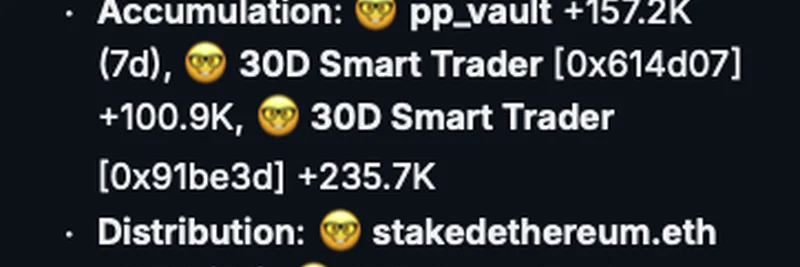What Happened with WLFI's Phishing Incident?
In a recent tweet from BSCNews, the crypto news platform highlighted a breaking story about World Liberty Financial (WLFI), a cryptocurrency project tied to the Trump family. WLFI confirmed that a small group of user wallets fell victim to phishing attacks right before their token launch. If you're new to this, phishing is a scam where hackers trick people into giving away sensitive info like wallet keys or seed phrases, often through fake websites or support channels.
This isn't just any crypto project—WLFI has garnered attention due to its association with former President Donald Trump and his family, who hold a massive 22.5 billion tokens out of the 100 billion total supply. These are governance tokens, meaning they give holders voting rights and a share in project revenues. The token launched on September 1, 2025, and saw wild trading action, with prices swinging between $0.24 and $0.30 early on, though it's now around $0.14 as of November 20, 2025.
The incident affected only a "small subset" of wallets, and importantly, it wasn't due to any flaws in WLFI's own systems or smart contracts (the self-executing code on the blockchain). Instead, users got hit by common traps like clicking on phony links, sharing keys with fake support agents, or having malware on their devices.
WLFI's Response and Actions Taken
The WLFI team acted quickly by freezing the compromised wallets back in September to stop any further theft. They've been clear in their statements: user security comes first, even if it means delaying things. In a post on X, they announced that reallocations—basically, moving funds to new, secure wallets—would start soon for verified users. To get this done, affected folks need to submit a support ticket and go through KYC (Know Your Customer) checks to prove ownership.
They've also built new smart contract logic to handle these transfers safely in bulk, ensuring everything is traceable and error-free. WLFI stressed that no funds were actually lost; the freezes were protective measures. Separately, they've blacklisted 272 wallets post-launch for suspicious activities, like ties to sanctioned entities or tools like Tornado Cash (a privacy mixer often flagged for compliance reasons). This is partly because of the project's high-profile political connections, which demand stricter standards.
Broader Implications for Meme Token Enthusiasts
For those diving into meme tokens like WLFI, which blend hype, politics, and crypto, this serves as a stark reminder of the risks in the space. Meme coins often explode in popularity but attract scammers looking to exploit the buzz. WLFI isn't your typical dog-themed meme; it's more of a politically charged token with real utility, including their USD1 stablecoin expansion on Solana via partnerships with Bonk and Raydium. This includes new trading pairs, liquidity pools, and rewards for providers—cool features that could boost adoption.
But incidents like this highlight why you should always double-check URLs, never share your seed phrases (those 12-24 words that unlock your wallet), and use hardware wallets for extra protection. If you're holding WLFI or similar tokens, head to their official channels for updates and avoid unsolicited messages claiming to be support.
This event also ties into the bigger picture of crypto security. With WLFI's presales raking in $400-500 million, the stakes are high. As blockchain practitioners, staying informed through reliable sources like BSCNews or CoinMarketCap can help you navigate these waters. And if you're curious about the security advisor's take, check out this exclusive report from The Street.
In the fast-paced world of meme tokens, knowledge is your best defense. Keep an eye on WLFI as they roll out these fixes—it could set a precedent for how projects handle breaches moving forward.


